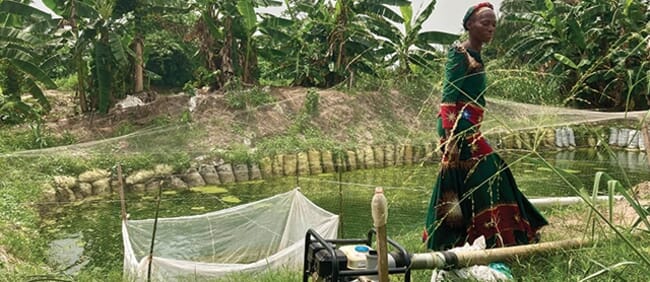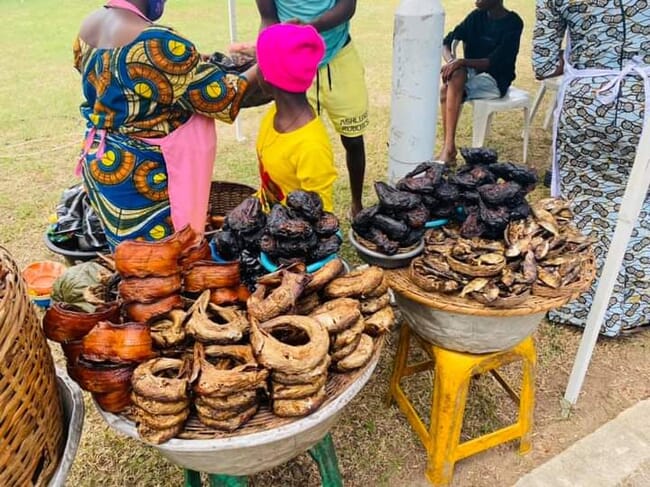
Nigeria hopes to improve the quantity and quality of its farmed catfish © FISH4ACP
Nigeria’s huge catfish sector can improve production and offer better jobs without additional burden on the environment, according to a ten-year development plan presented to some 50 stakeholders and experts, who discussed concrete action to achieve the strategy’s ambitious goals.
“Nigeria is the world’s largest producer of African catfish on which millions of people’s livelihoods depend,” said Ime S Umoh, director of fisheries and aquaculture, Federal Ministry of Agriculture and Rural Development, at a meeting in Abuja on 29 June, where a ten-year plan for the sustainable development of Nigeria’s catfish sector was presented. He added, “our goal is to improve domestic catfish production, not only in quantity, but also in quality, while providing better jobs for our people and making sure no harm is done to the environment.”
The strategy, developed by the global fish value chain development initiative FISH4ACP with stakeholders from across the Nigerian catfish sector, lays down a roadmap for better quality and increased production of fresh and processed catfish, more income and employment for millions of small-scale farmers and workers and a climate adapted approach that would reduce environmental and health impacts.
By 2032, the plan foresees a 20 percent increase of catfish production that would lead to 30 percent more benefit, in particular for small-scale aquaculture producers. At the same time, there would be a ten percent growth of employment and the health of workers would improve due to measures reducing air pollution, while at the same time halting deforestation, protecting waters and wildlife.
“This ambitious plan for a more sustainable catfish sector that offers prosperity to small-scale producers and better jobs to fish workers while reducing its carbon footprint fits the sustainable development agenda that Europe supports,” said Urszula Sołkiewicz, international partnerships officer of the EU Delegation in Nigeria.
Since the report was published, some 50 stakeholders and experts involved in Nigeria’s catfish aquaculture have discussed the strategy in detail and will agree on a set of concrete activities to carry them out. It will set the agenda for FISH4ACP - an initiative of the Organisation of African, Caribbean and Pacific States (OACPS) implemented by FAO - in the years to come and beyond its completion in 2025.

The plan foresees a 20 percent increase of catfish production by 2032 © Efua Konyim Okai
“FAO is happy to support Nigeria’s ambition to increase and improve its domestic catfish production,” said Fred Kafeero, FAO’s representative in Nigeria and to the ECOWAS, adding, “FISH4ACP’s innovative value chain approach is a fine example of how FAO’s core objectives of Better Production, Better Nutrition, a Better Environment, and a Better Life can become a reality in Nigeria.”




